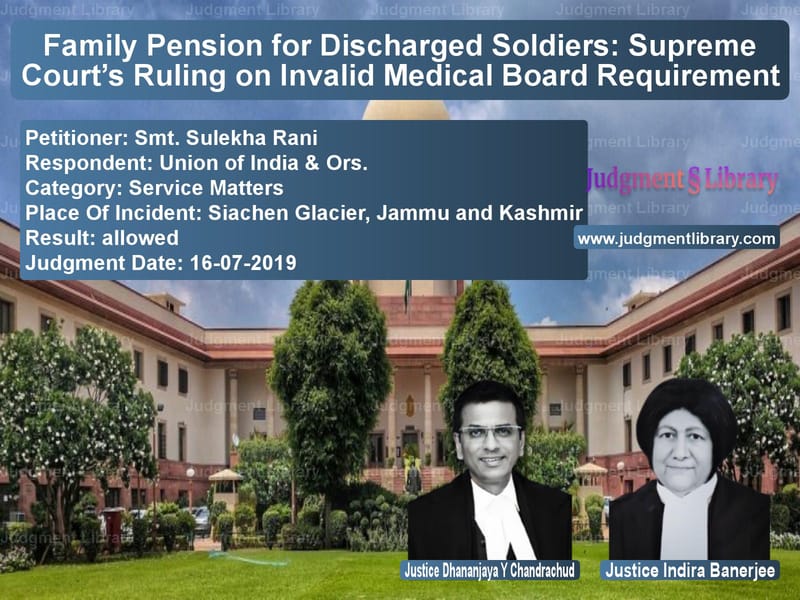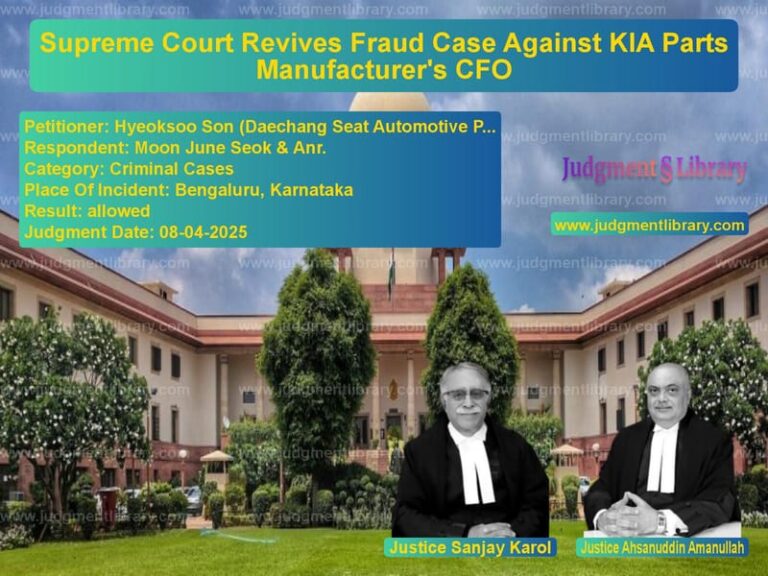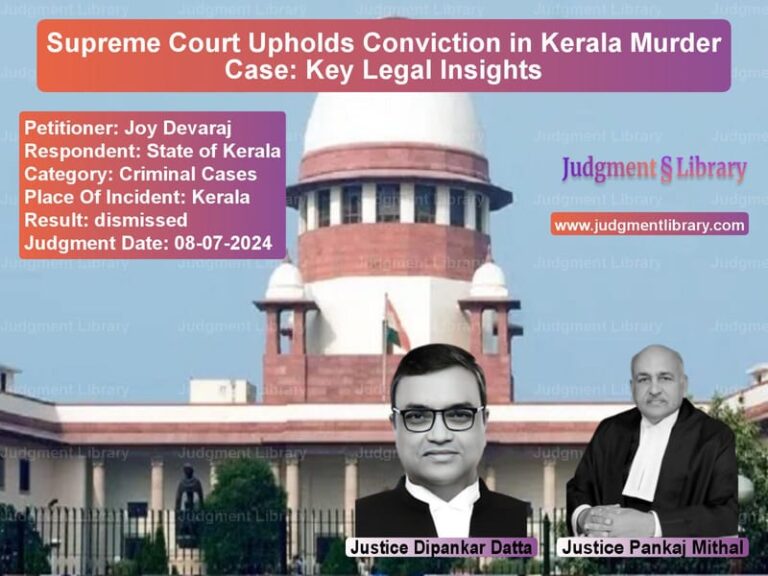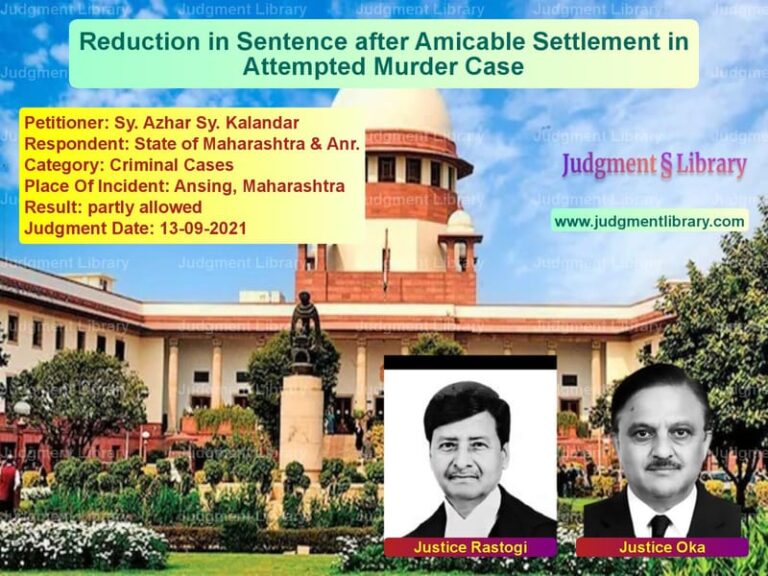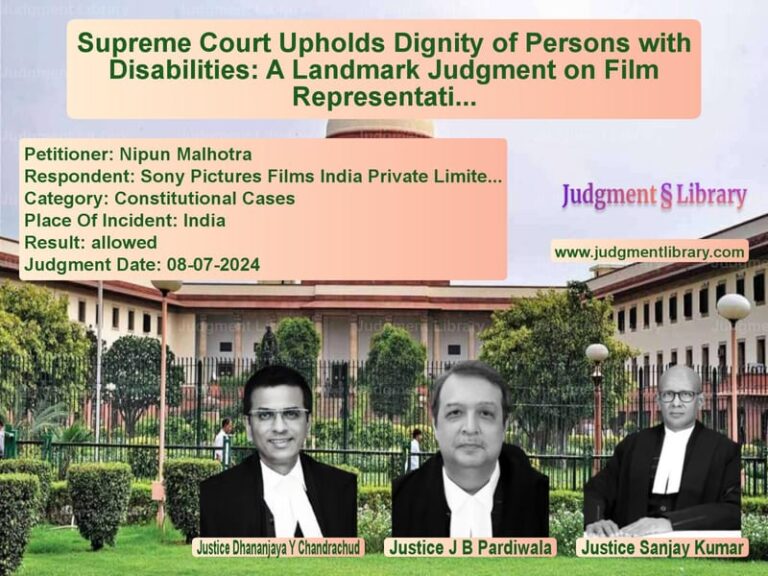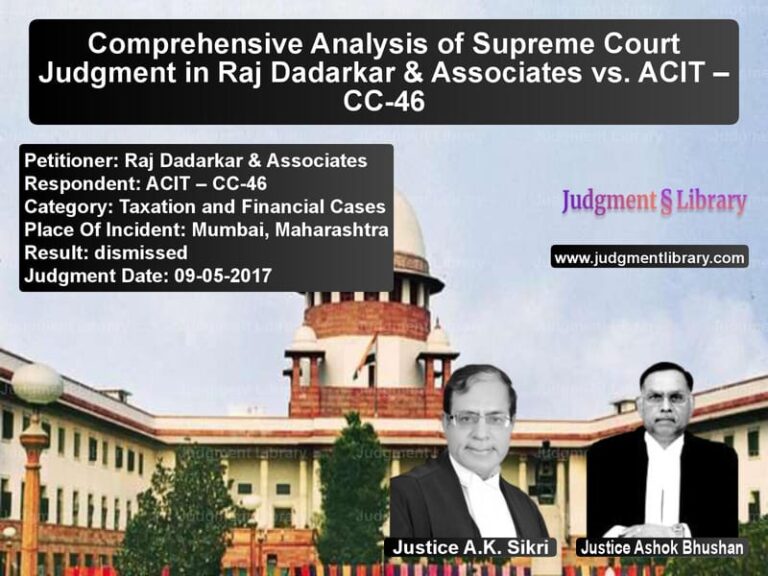Family Pension for Discharged Soldiers: Supreme Court’s Ruling on Invalid Medical Board Requirement
The Supreme Court of India recently delivered an important judgment in Smt. Sulekha Rani v. Union of India & Ors., dealing with the right to family pension for the widow of an ex-serviceman who was discharged on medical grounds without being subjected to an Invalid Medical Board. The ruling reaffirms the principle that medical discharges must follow due process, ensuring fair treatment for armed forces personnel and their families.
Background of the Case
The case originated from the discharge of the appellant’s husband, who served in the Indian Army from April 23, 1994, until August 31, 2001. He was initially in SHAPE-1 medical category but was later downgraded to a lower medical category after being posted at the Siachen Glacier in 1998.
Key facts:
- He was posted at Siachen Glacier from September 13, 1998.
- His medical category was downgraded on August 30, 2000.
- He was posted in a counter-insurgency area in Jammu and Kashmir in November 2000.
- On August 31, 2001, he was discharged from service.
- He passed away on September 30, 2007, six years after his discharge.
- His widow, the appellant, sought a family pension, which was denied by the Armed Forces Tribunal (AFT).
Key Issues Before the Supreme Court
- Whether the deceased soldier was entitled to an Invalid Medical Board before his discharge.
- Whether the medical condition that led to his discharge was attributable to military service.
- Whether the denial of a family pension was justified.
Arguments by the Petitioner (Sulekha Rani)
The appellant contended:
- The deceased soldier was in sound medical condition when he joined service, and any medical deterioration should be presumed to be due to military service.
- No Invalid Medical Board was convened before his discharge, violating due process.
- Under Dharamvir Singh v. Union of India (2013), any disease that leads to an individual’s discharge is presumed to have arisen in service unless recorded otherwise at the time of joining.
- As his widow, she was entitled to a family pension based on the presumption that his illness was service-related.
Arguments by the Respondents (Union of India & Others)
The respondents argued:
- The soldier had an ectopic kidney condition, which was congenital and not attributable to military service.
- He was issued a show-cause notice on March 2, 2001, informing him that no sheltered appointment was available, and he accepted his discharge.
- Since he voluntarily accepted his discharge, an Invalid Medical Board was unnecessary.
- His widow’s claim for a family pension was invalid because his discharge was not based on a service-attributable disability.
Supreme Court’s Judgment
The Supreme Court, in a judgment authored by Justice Dhananjaya Y Chandrachud and Justice Indira Banerjee, ruled in favor of the appellant and directed the grant of a family pension.
On the Requirement of an Invalid Medical Board
“The discharge of an armed forces member due to medical reasons must be supported by an Invalid Medical Board’s recommendation. Failure to do so renders the discharge legally flawed.”
The Court cited Rajpal Singh v. Union of India (2009), which held that a discharge due to medical unfitness must be strictly in accordance with military rules, including an Invalid Medical Board evaluation.
On the Presumption of Service-Related Illness
“A member is presumed to be in sound physical and mental condition upon entering service if there is no record at the time of recruitment stating otherwise. Any deterioration must be presumed due to service.”
The Court referenced the principle established in Dharamvir Singh, which states that a soldier’s medical deterioration is to be presumed as service-related unless proven otherwise.
On the Entitlement to Family Pension
“The widow is entitled to a family pension as the soldier’s service must be deemed to have continued until the date of his death due to the improper discharge procedure.”
The Court directed the government to grant a family pension, deeming the deceased soldier’s service to have continued until September 30, 2007.
Final Relief Granted
- The Armed Forces Tribunal’s judgment was set aside.
- The appellant was granted a family pension, payable from the date of her husband’s death.
- No arrears of salary were granted for the period between his discharge and death.
- The pension arrears were to be paid within three months.
Key Takeaways
- Invalid Medical Board is Mandatory: No soldier can be discharged for medical reasons without an evaluation by an Invalid Medical Board.
- Presumption of Service-Attributable Illness: Any medical deterioration must be presumed to have arisen due to service unless explicitly noted at the time of recruitment.
- Family Pension Cannot Be Arbitrarily Denied: Widows of soldiers discharged under questionable circumstances are entitled to pension benefits.
- Due Process in Military Discharges: Armed forces authorities must follow established procedures when discharging personnel for medical reasons.
Conclusion
The Supreme Court’s ruling in this case reaffirms the principle that military personnel must be afforded due process before discharge on medical grounds. It upholds the rights of their families, ensuring that arbitrary denials of pension benefits are corrected. The judgment serves as an essential precedent for future cases involving invalidated discharges and family pension entitlements.
Petitioner Name: Smt. Sulekha Rani.Respondent Name: Union of India & Ors..Judgment By: Justice Dhananjaya Y Chandrachud, Justice Indira Banerjee.Place Of Incident: Siachen Glacier, Jammu and Kashmir.Judgment Date: 16-07-2019.
Don’t miss out on the full details! Download the complete judgment in PDF format below and gain valuable insights instantly!
Download Judgment: Smt. Sulekha Rani vs Union of India & Ors Supreme Court of India Judgment Dated 16-07-2019.pdf
Direct Downlaod Judgment: Direct downlaod this Judgment
See all petitions in Pension and Gratuity
See all petitions in Employment Disputes
See all petitions in Public Sector Employees
See all petitions in Disciplinary Proceedings
See all petitions in Judgment by Dhananjaya Y Chandrachud
See all petitions in Judgment by Indira Banerjee
See all petitions in allowed
See all petitions in supreme court of India judgments July 2019
See all petitions in 2019 judgments
See all posts in Service Matters Category
See all allowed petitions in Service Matters Category
See all Dismissed petitions in Service Matters Category
See all partially allowed petitions in Service Matters Category

